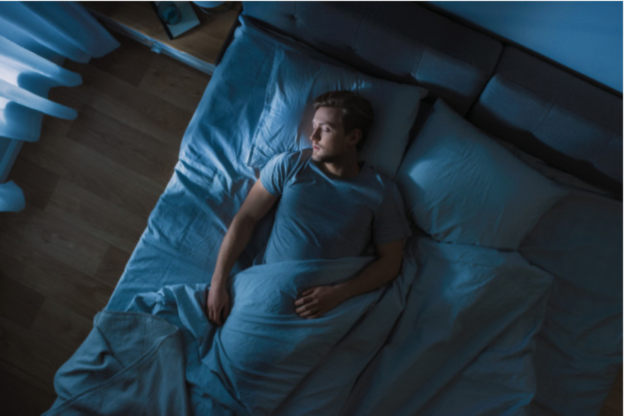Why is sleep important in addiction recovery?
Sleep. The peaceful slumber and dreamland that provides necessary rest and rejuvenation for the mind and body. Let’s face it, not many do get the required sleep and rest needed. If you are new in recovery, your sleep cycle might be disrupted because of drugs and alcohol. Gordon suggests that sleep disturbances might be the reason for initial use, continued use, and even relapses. Therefore, sleep is monumentally important in addiction recovery!
How drugs and alcohol affect sleep
- Alcohol might give a feeling of drowsiness and calm to lull you into sleep, at least initially. But the Cleveland Clinic notes that alcohol disrupts the quality of sleep by increasing the number of times a person wakes in the night, and interrupts the lack of deep, REM sleep needed.
- Marijuana interacts with the endocannabinoid system by binding to the cannabinoid receptors. The endocannabinoid system is also involved in regulating the sleep-wake cycle, which means your sleep might be interrupted after use.
- Opiates react by binding to the opioid receptors, which also play an integral role in regulating sleep. Opiates can disrupt sleep by increasing the transitions between the stages of sleep.
- Stimulants affect the dopamine reward system and give the user a wakefulness feeling, disturbing latency sleep. Latency sleep means that the person has difficulty with the onset or falling asleep.
What happens after I stop using drugs and alcohol?
Withdrawal symptoms can interfere with sleep and depend on the substance previously used. Opiates, marijuana, and alcohol give a sleepy feeling but can have the opposite effect when a person initially stops using. Stimulants, on the other hand, produce a wakeful consciousness that leads to a coma-like sleep during withdrawal. Your sleep might be disrupted for months after you stop using, which could be part of post-acute withdrawal symptoms (PAWS). The main difference between acute withdrawal and PAWS is the amount of time that has passed since active addiction.
Tips for managing sleep in early recovery
- Ambiance. A pleasant ambiance can make a massive difference in the quality of sleep. Is your pillow comfortable? Is the room quiet enough? How is the temperature in the room?
- White noise. Some people prefer a constant sound to help lull them to sleep. My youngest daughter cannot sleep without the fan, whereas I prefer the gentle sound of rain or complete quiet.
- Stay on schedule. Are you going to bed at the same time each night? If not, that might deter your body from being able to reset itself. If you have an iPhone, you can use the bedtime feature on the clock to remind you when it’s time to sleep.
- Avoid late naps. No matter how tired you might feel during the day, taking a daytime nap could make falling asleep more difficult.
- Avoid caffeine. Who doesn’t love a good cup of joe? Maybe you prefer the carbonated form of caffeine. Drinking caffeinated beverages later in the day isn’t helpful for sleep.Try to limit your caffeine to no more than 2 servings daily.
- Keep a journal. Try keeping a sleep diary or journal. You might be surprised by what you learn. Perhaps there is a recurring dream or troublesome thoughts that prevent you from falling or staying asleep.
- Relax! Start by taking a few deep belly breaths, then beginning at the top of the head and working down to the toes, tense each muscle group, hold, then release. After you have completed the entire body, quickly check for any residual tenseness and repeat the process with those areas. Here is an excellent step-by-step description of progressive relaxation: Relaxation for Insomnia. YouTube has several videos for guided imagery for sleep. Choose the one that feels right for your needs.
- Sacred space. Keep your bed reserved for sleep. And try not to watch television, eat, read, or work.
- Evening Snack. Hungry? If you find that you are hungry before bed, avoid large, heavy foods. Instead, try a light snack, a cup of hot chamomile tea, or anything else that will aid in sleep.
- Avoid frustration. If you have been in bed 30 minutes or longer and have not fallen asleep, get up and try a relaxing activity in low light until you feel sleepy. Perhaps try slow, gentle stretching or light reading.
Stay Healthy
We have all heard that 7-8 hours of sleep a night is best for most people for continued good health. And we know that drugs and alcohol interfere with restful sleep and create sleep deficiencies which affect our overall health. Additionally, insufficient rest and poor physical health can lead to relapse.
If you want to learn more about our holistic, mindfulness-based program, contact Centered Recovery Programs today at 1-800-556-2966.
References
Cleveland Clinic. (n.d.). Drugs & alcohol and sleep-related disorders. https://my.clevelandclinic.org/health/diseases/12118-drug–and-alcohol-related-sleep-disorders
Gordon, H. W. (2019). Differential effects of addictive drugs on sleep and sleep stages. Journal of Addiction Research, 3(2). https://doi.org/10.33140/jar.03.02.01
National Institute on Drug Abuse. (2020, March 9). Connections between sleep and substance use disorders. National Institute on Drug Abuse (NIDA) |. https://www.drugabuse.gov/about-nida/noras-blog/2020/03/connections-between-sleep-substance-use-disorders






